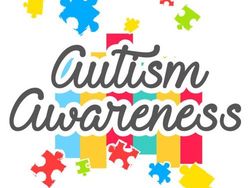 April is Autism Awareness Month, established to raise awareness about the developmental disorder that affects an individual’s normal development of social and communication skills.
April is Autism Awareness Month, established to raise awareness about the developmental disorder that affects an individual’s normal development of social and communication skills.
To help ACHE of Massachusetts celebrate and provide education around Autism Awareness, Diversity, Equity and Inclusion Member Soraya Kanakis shares a personal story about her son and how they worked with the Washington State Autism Alliance and Advocacy Group to create an Autism ID card that helps members of law enforcement understand the signs and symptoms of Autism.
“Charlie had a busy night ahead of him as he drove down I-5. An art student with a 3.5 GPA—and a 6”-high stack of letters from the Dean commending him for his academic achievements— Charlie was en route to his last class before graduation, trying to make the most of what little time left he had to prepare for his impending final exams. It was at this juncture that one of Charlie’s tires had popped. After pulling to the side of the road, Charlie called AAA, and after a spare tire was installed continued on his journey. It wasn’t a perfect fix, since the tire made the car swerve slightly in the lane, but it was good enough, and so Charlie continued on his way to class.
However, as Charlie continued to drive, he began to notice flashing lights in his rearview mirror. He began to feel very afraid—as a cautious driver with a clean record, Charlie had never been pulled over by a police officer before, and had no idea what he had done wrong. After commanding Charlie to get out of his car, and securing hands behind his back, the officer finally explained that he was arresting Charlie for driving under the influence of alcohol. This took the already scared Charlie completely by surprise.
As it dawned on him what was happening, Charlie struggled to explain that his tire had made it difficult to steer. But like many people on the Autism Spectrum, Charlie has speech difficulties that can make it extremely difficult for him to articulate himself, especially in stressful situations such as these. As he sat in the back of the officer’s car as it rushed toward the police station, he had no idea what to do. Saying nothing, the officer took him back to the police station, and tested Charlie for alcohol and illegal drugs. Without saying a word, the officer escorted Charlie to the entrance of the police station, and let him go. As the scared and humiliated student slowly walked off, the policeman noticed some of his fellow officers hanging outside, finally breaking his silence with a single word: “Drugs.”
After returning home, Charlie and his mother Samara began the process of trying to grapple with what happened. He had not been able to make his last class, thus impacting his preparations for finals. Yet, despite the traumatic nature of the incident, Charlie was never informed of the results of his breathalyzer test, or whether he was even charged with a crime in the first place.
But Samara began to wonder: was this really over? Neither she nor Charlie had heard anything from the authorities regarding whether or not his record had been affected.
Deciding to be better safe than sorry, she contacted a lawyer who was familiar with both DUI cases and disability issues. After scanning police records, the lawyer found a shocking surprise— despite the breathalyzer test coming back negative, Charlie now had a DUI on his record. Fortunately, the attorney eventually managed to get all of the charges dropped for lack of evidence.
But this would not be the last Charlie would see of the police. On his way home from the impound lot a few weeks later, Charlie saw flashing lights in his rearview mirror. Overcome with anxiety, Charlie pulled over. But this time, Charlie was prepared: his mother had ordered a special card for him explaining that Charlie had an Autism Spectrum Disorder that can make it more difficult for him to communicate with other people. The cop read the card, said he understood, and let Charlie proceed home.
Charlie would continue to receive unwanted attention from the authorities even after his car got new tires. His two prior experiences with the police had left him terrified, and thus he began to drive more slowly. Yet again he was pulled over. Again he showed the officer his card explaining that he had Autism Spectrum Disorder—and yet again, the officer said he understood, and Charlie continued on his way. Between court expenses, lawyer fees and charges from the impound lot, the costs of defending someone from even a frivolous DUI exceeded $3000, much too are difficult for many Washington families to bear, and Charlie’s was no exception. To this day, Charlie continues to feel anxiety about further encounters with the police— but the success of the Autism ID card in explaining his challenges has helped mitigate his fears. Samara noted, “By working with WAA to share his story, it has helped Charlie go through the process of helping others so that they may not have to go through what we experienced. It was all actually quite horrible. Charie’s DUI wasn’t dropped until after we went to court. We were incredibly fortunate to have found an incredible attorney.”
If you have autism or you care for a person with autism, we recommend making an emergency ID card. If you make a card for someone else, teach the person with autism to keep it on hand to share with people in confusing situations, such as when they’re approached by a uniformed person or when they have difficulty interacting with others they don’t know.”
Soraya notes that here in Massachusetts, we have the new Bill H.2062, which is the new tactical training that law enforcement officers are now required to undergo in Massachusetts. The part of the law that we are thankful for establishes special training for police recruits in how to deal with individuals on the autism spectrum or who have other intellectual or developmental disabilities. This training is part of the new police reform bill that will benefit those who are living with Autism. This new training will help officers to learn a little bit about the best ways to approach everyone on the spectrum as they will learn how to look for signs and signals. The new training requirement is also being welcomed by the officers.
We thank Soraya and her son for sharing their story, as well as their continued learnings about the different aspects of Autism. Her youngest son was awarded a scholarship through AANE to learn how to play the piano at Berklee College of Music back in 2018 and then in 2019, he found a summer internship through ASPIRE who is once again helping him find a summer internship for 2021, where he will work from home for 6 weeks in order to gain more real-life work experience. Soraya is also working with LifeNet through AANE which will help him become more independent as he wishes to eventually be on his own.
 Soraya Kanakis is a life-long learner and will graduate on May 27, 2021 from Harvard University. She has 8 more classes to complete till she receives her 3rd masters degree. As a single mom of two sons with special needs, she works full-time and goes to school part-time and has devoted her life to bettering healthcare.
Soraya Kanakis is a life-long learner and will graduate on May 27, 2021 from Harvard University. She has 8 more classes to complete till she receives her 3rd masters degree. As a single mom of two sons with special needs, she works full-time and goes to school part-time and has devoted her life to bettering healthcare.

